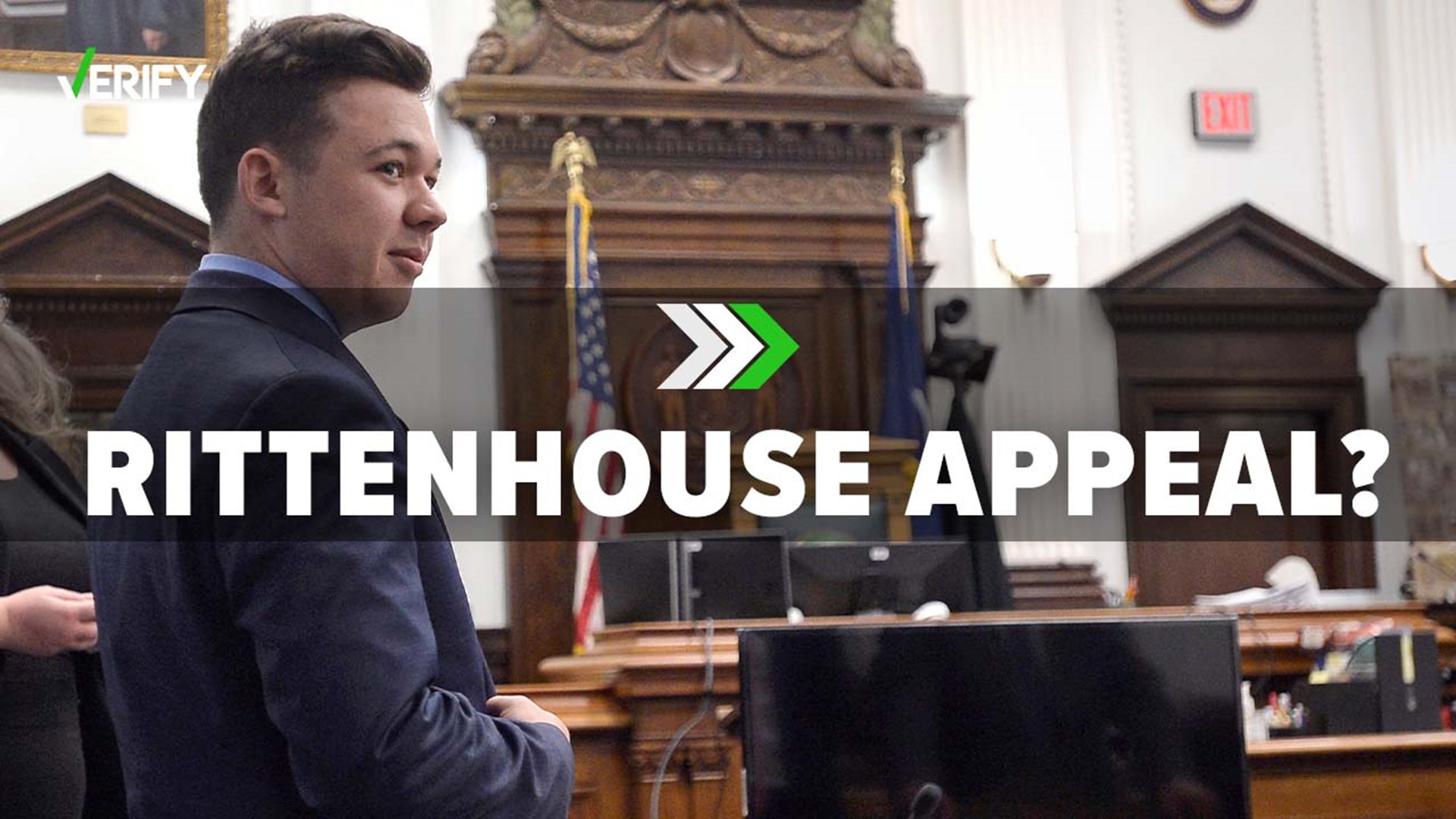A jury on Nov. 19 found Kyle Rittenhouse not guilty on all five charges he faced connected to the deadly shootings last year in Kenosha, Wisconsin. Rittenhouse, who claimed self-defense, shot three people, killing two, during a protest following the police shooting of Jacob Blake, a Black man.
The acquittal in the high-profile trial was met with mixed reactions, with some people applauding the jury’s decision and others decrying it. One of the trending questions on Google following the verdict was, “Can the prosecution appeal a not guilty verdict?”
THE QUESTION
Can prosecutors appeal the not guilty verdict in the Kyle Rittenhouse trial?
THE SOURCES
- U.S. Attorney’s Office for the Western District of Wisconsin
- Wisconsin law
- Fifth Amendment
- Chad Oldfather, professor of law at Marquette University
- Robert Weisberg, faculty co-director of Stanford Criminal Justice Center
THE ANSWER
No, prosecutors can’t appeal the not guilty verdict in the Kyle Rittenhouse trial.
WHAT WE FOUND
The U.S. Attorney’s Office for the Western District of Wisconsin says appeals by the government in criminal cases are limited by the Constitution. In the Rittenhouse trial, the state of Wisconsin was the prosecution.
“The 5th Amendment’s ‘double jeopardy’ clause protects against multiple prosecutions for the same offense,” the U.S. Attorney’s Office says. “Therefore, if the defendant is acquitted, the government cannot appeal.”
The Fifth Amendment says, in part, “nor shall any person be subject for the same offense to be twice put in jeopardy of life or limb.”
Chad Oldfather, professor of law at Marquette University in Wisconsin, says the double jeopardy clause is intended to prevent the government from trying the same person multiple times for the same crime.
“Among other things, that means that once a jury has returned a not guilty verdict, the case is over,” Oldfather told VERIFY.
Wisconsin law says the state can appeal a decision “if the appeal would not be prohibited by constitutional protections against double jeopardy.” A few examples of that, according to the U.S. Attorney’s Office for the Western District of Wisconsin, are appeals that seek the reversal of a conviction or appeals of court decisions on certain pre-trial motions, such as suppression of evidence or sentencing issues.
But Robert Weisberg, faculty co-director of the Stanford Criminal Justice Center, says those don’t apply to the Rittenhouse trial and that an appeal by the prosecution “would be flagrantly unconstitutional double jeopardy.”
“This case is over,” Weisberg told VERIFY via email.

